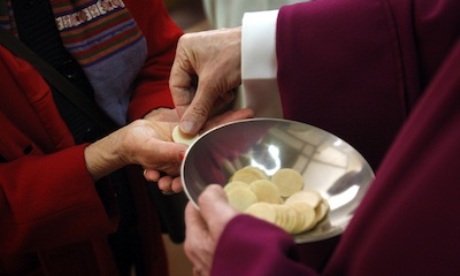One third of divorced and remarried Catholics, who have not had their first marriage annulled, receive Communion, according to a Tablet survey.
More than 4300 people from around the world completed a questionnaire on www.thetablet.co.uk between 3 and 14 October about what they’d like to see from the synod on the family.
Nearly 85 per cent of respondents were from the United States or the United Kingdom.
Men respondents outnumbered women by a two to one ratio.
In the US, the survey was highlighted on conservative blogs.
Of the divorced and civilly remarried (without an annulment) survey respondents who receive Communion, ten per cent do so with the permission of a priest.
Catholics in Britain and Ireland in such circumstances were almost twice as likely as US Catholics to receive Communion without having sought priestly permission (29 per cent to 17 per cent).
Of the priests who responded, more than a third said the ban on artificial contraception could be ignored in good conscience and that cohabitation could be an acceptable stage en route to marriage.
Respondents said the best way for the Church to support marriage and family life was to run courses for married couples, while also clearly setting out its teaching on sexual matters.
Practising Catholics said the chief threats to marriage and family life were: artificial contraception; gay marriage and adoption; pressure caused by long working hours, money worries and unemployment; and the proliferation of pornography.
Almost three-quarters of practising Catholics welcomed the presence of lay people at the synod, with one-quarter saying they wished more had been invited to attend and to be involved in decision-making.
Meanwhile, a Pew Research Center survey in the United States has found that 85 per cent of Catholics aged between 18 and 29 feel that homosexuality should be accepted by society.
Among church-going Catholics of all ages who attend Mass at least once a week, twice as many say homosexuality should be accepted (60 per cent) as say it should be discouraged (31 per cent).
Sources
